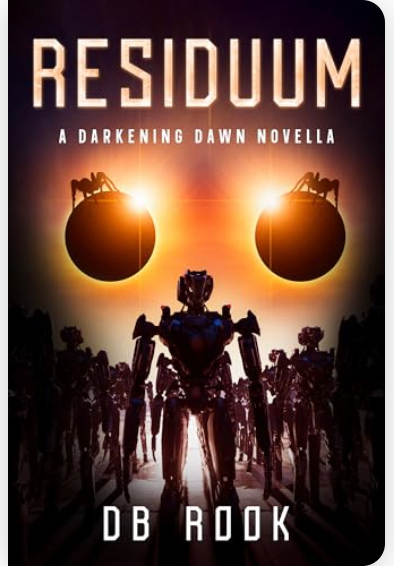SFINCS Review: Phengaris by Anna Orridge
- Angela Boord

- Nov 24, 2025
- 3 min read

There's something very wrong in Thurstrop Wood.
Mark Warner never noticed it before. He's there to get away from his life, his ailing mother. Out of his head. Not to think about anything.
Birds sing in the wood. But their rhythms seem wrong somehow. Insects crawl and nest, but not where you'd expect them to.
Something in Thurstrop Wood has noticed him. And now it's seen him - it doesn't want to let him go...
Surreally beautiful and uncomfortably visceral, Phengaris' eco-horrors will stay with you long after the final page.
What is SFINCS?
“The Speculative Fiction Indie Novella Championship (SFINCS, pronounced “sphinx”) is a yearly competition to recognize, honor, and celebrate the talent and creativity present in the indie community. We are a sister competition to both SPFBO and SPSFC, and we highlight greatness in the novella format in all areas of speculative fiction (fantasy, science fiction, horror, etc.).” – From the official SFINCS website.
Note: The following review contains only my personal thoughts as a judge and does not reflect the views of the team as a whole.
Review
I had to think for a while about how I really felt about Phengaris. The writing was smooth, the images were creepy, ecohorror usually has an appeal for me, and I thought that the way the author dealt with the messiness of emotional abuse and its effects on Mark, the main character, were well done. There are few easy characterizations in this story, which I think is a strength. But in the end, I was conflicted.
As the sole caregiver to his abusive mother while she dies a long, wasting death, teenage Mark is making the best of a bad situation by self-medicating. When he meets his dealer in a strange, probably-haunted scrapyard, he begins having hallucinations which may or may not be caused by the drugs he’s been given. As he starts trying to discover what’s going on, he begins to turn up a host of secrets, about the scrapyard and his own family.
None of the characters—including Mark—were really likeable, but I felt that was by design and contributed to the horror feeling of the story. This world is broken, none of its relationships are sane, and that brokenness seeps down through generations, warping things that should be inherently good—nature itself in the scrapyard, the desire trails, the mother-child/father-child relationship, even (maybe especially) Mark’s relationship with himself. (And here I have to mention that I started out thinking Mark was in his early twenties only to find out that he is in fact 17, which changed my reading of the story enormously.) There were many points when I, as the reader, could feel a lot of sympathy for Mark, or pity for him, and yet, Mark is not very nice in some ways. It’s definitely the kind of story that holds the reader at a distance, kind of like being stopped in traffic at the scene of an accident. You want to look away, but there’s also a sort of fascination that comes in seeing this sort of emotional wreckage.
I think clearer stakes would have made it easier for me to get really involved in the story, though. The reader always knows that Mark’s mother is going to die. We’re never really told why anything Mark does matters, beyond the fact that he’s trapped in this horrible family situation, but why do his investigations matter? Is he trying to escape? Does he just want to know the truth? The question in my mind from the very beginning was, why is Mark being peeled away, layer by layer?
I’m not sure we ever got a real answer. And I think that’s why the story never became truly scary for me, because it was unclear what Mark had to lose beyond body horror. The claustrophobia and suspense I really enjoy in a horror novel did pick up at the end, when Mark reveals what might have been motivating him the whole time—something that would have provided a deep, relatable connection throughout the story (at least for me)—but it was never allowed more than a few paragraphs. Everything wrapped up so quickly that the story was over just as I was getting invested in it.
Overall, though, I did feel compelled to keep reading from the very beginning. If you like queer ecohorror, well-done imagery, and deep dives into characters and dysfunctional family relationships, then definitely check this one out.





Comments